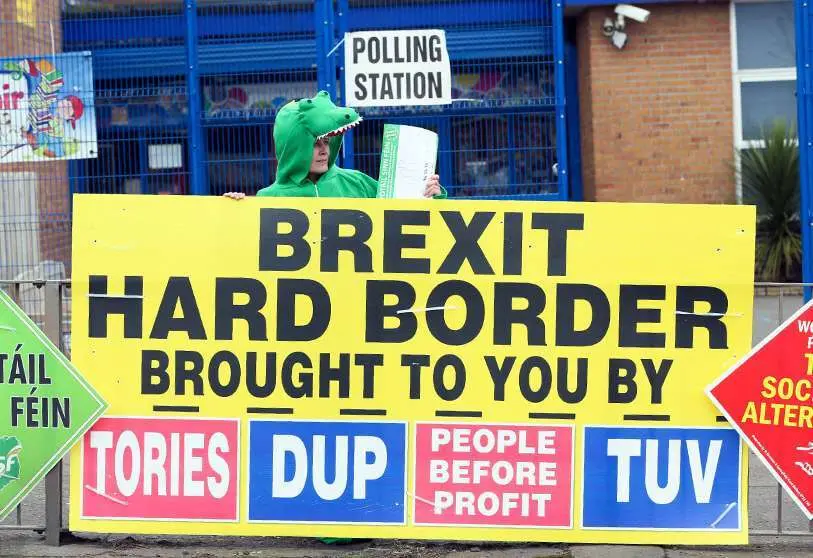Sausages of discord

Bismarck is attributed with the phrase "Laws are like sausages. It is better not to see how they are made". The no-deal approval of the Brexit divorce agreement had a lot to do with parliamentary sausage-making, and, by an ironic twist of fate, it was precisely the sausage marketing that has brought the UK to the brink of a trade war with the European Union.
The issue can be traced back to Boris Johnson's decision to agree to the introduction of customs between Northern Ireland and the rest of the European Union, reversing his own opinion against it a few months earlier. This arrangement allows for the enforcement of the Good Friday agreement, which strictly proscribes the existence of any kind of border between the two Irish states. In practice, this means that the Republic of Ireland and Northern Ireland are part of the single market, but that the UK is, for trade purposes, a third country in relation to part of the state itself.
Well aware - but not conscious - of the implications, London asked Brussels for a grace period temporarily exempting the UK from the strict application of World Trade Organisation rules as far as Northern Ireland is concerned. This period expires on June 30, and the reality of what Johnson boasted of having signed up to has suddenly become clear. Essentially, the problem is that EU food safety regulations only allow frozen meat to enter the single market, explicitly prohibiting the import of chilled meat products from countries outside the single market. As a result, Lincolnshire cannot sell its fresh sausages to Ulster.
It would be frivolous to take the political implications of this issue as a joke, as an unsophisticated issue. If Brexit has shown anything, it is how easy it is to demagogue with herring and sausages, however much cosmopolitan elites fail to understand the powerful appeal of the Arcadian narrative in the urban world. Members of Parliament, however, are acutely aware of the power of these nostalgic myths among voters, for one elementary reason: in the UK the seat is won door-to-door, literally, and everyone from councillor to prime minister must strive to seduce voters personally, and to confront the views of every neighbour's son or daughter.
It is therefore not surprising that Boris Johnson's cabinet has turned up the heat on the jingoistic rhetoric against Europe before and during the G7, even threatening to invoke article 16 of the EU exit agreement, which would effectively mean digging up the trade hatchet, as Von der Leyen was quick to confirm.
This state of affairs clearly demonstrates the limitations of the 'diffuse glocalism' with which the pro-Brexit think tanks have articulated the discourse of the break with the European Union. In simple terms, no longer an imperial power, the United Kingdom is no longer in a position to impose its mercantile customs and habits on the rest of the world, and is discovering with disbelief how one saint is undressed when another is clothed. Evidence of this frustration can be seen in the words of British minister David Frost, introducing the innovative concept of "legalistic purism" applied to international law, to accuse the EU of dogmatism and lack of restraint for not compromising the integrity of the single market to resolve the irresolvable internal contradictions of Britain's territorial structure. By now, even the most fervent advocates of Brexit know deep down that their reverie has turned the famous prisoner's dilemma into a nightmare, and that for every open door another one closes.



